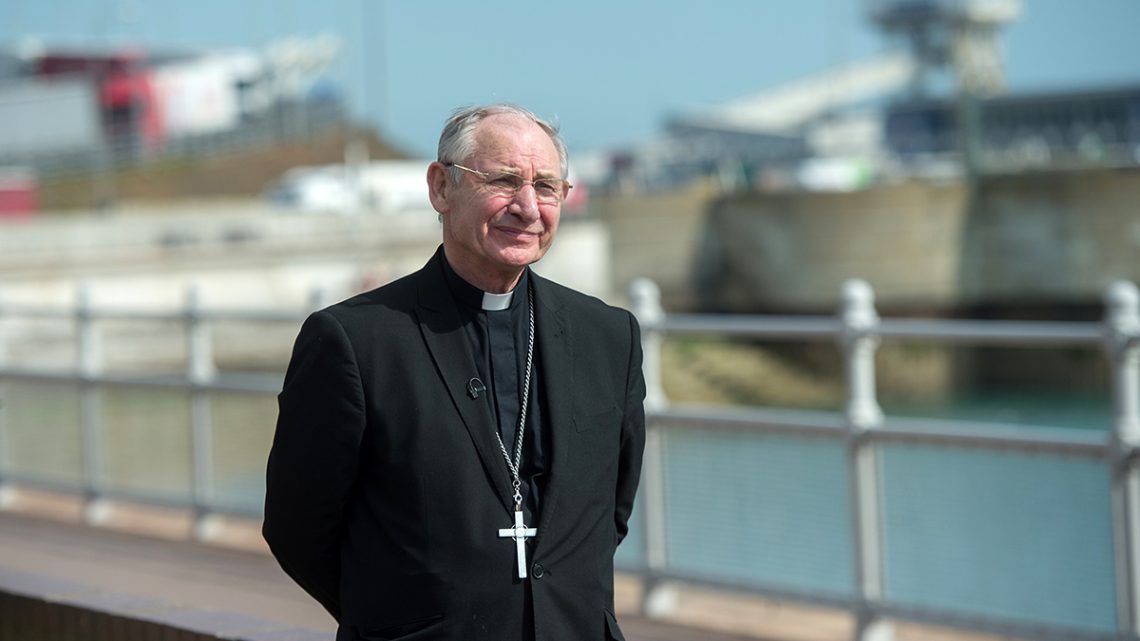
Bishop Paul McAleenan, Lead Bishop for Migrants and Refugees, and Bishop William Nolan, Chair of the Scottish Bishops’ Commission for Justice and Peace, have written to the Home Secretary about the government’s New Plan for Immigration.
The Bishops echo concerns expressed by Catholic charities including the Jesuit Refugee Service and the Santa Marta Group in their responses to the government consultation. In particular they express strong opposition to the proposed creation of a two-tier asylum system and warn that plans for tougher border security could drive more people into the hands of traffickers.
They also call for clear resettlement targets and proper support for civil society groups welcoming refugees through community sponsorship.
Drawing on Pope Francis’ recent message for the World Day of Migrants and Refugees, the Bishops end with an appeal that we continue to make room for people who seek safety and a home among us in the UK.
Dear Home Secretary,
We write on behalf of the Catholic Church concerning the New Plan for Immigration and the consequent implications for the human dignity of people seeking sanctuary in the UK.
In his message for the World Day of Migrants and Refugees, released this week, Pope Francis calls on each of us to move ‘towards an ever wider we’, drawing on the deep interconnectedness of humanity and recognising that all refugees and migrants are made in the image of God. He urges us to ‘break down the walls that separate us and build bridges that foster a culture of encounter’.
This year, being the 70th anniversary of the UN Refugee Convention, it is especially pertinent to reflect on our history of welcoming, protecting, promoting, and integrating refugees. It is also a time for action to ensure that our asylum system embodies the values Pope Francis speaks of and provides a generous response to those driven from their homes by the many challenges facing our world today, such as poverty, conflict, or the climate emergency.
We cannot ignore our own role in this displacement, particularly through making significant cuts to the aid budget, which are falling upon the world’s poorest people, and our status as one of the largest exporters of arms, which fuel conflicts around the world. As Pope Francis reminds us, all of humanity is interconnected.
Across the UK, Catholic organisations such as Caritas, the Jesuit Refugee Service, St Vincent de Paul Society, and the Santa Marta Group, as well as many smaller groups of volunteers, are supporting our refugee sisters and brothers. They speak from a position of experience, drawing on their daily encounters. We share the concerns they have expressed about the New Plan for Immigration and encourage you to thoroughly consider submissions they have made to the accompanying consultation.
In particular we would like to draw your attention to three areas:
The creation of a two-tier asylum system
Creating arbitrary divisions based on people’s method of entry will have profound implications for those who need our support most. We know that many families and individuals have no choice in the route that they take and to penalise them on this basis dangerously undermines the principle of asylum. We oppose any move to treat differently those forced to risk their lives or make difficult journeys to reach safety and those who are selected for organised resettlement routes.
Community Sponsorship and resettlement
Pope Francis has called on Catholic communities to host refugee families and in response
parishes across the UK have been at the forefront of welcoming people through Community
Sponsorship. We are encouraged by the government’s commitment to a new UK
Resettlement Scheme and ensuring that more people can enter through the Community
Sponsorship route. However, we also recognise that the impact will be limited without
ambitious targets or proper support for civil society groups and urge you to incorporate
these into resettlement policy as it is developed.
Human trafficking
There are many shortcomings in our society’s response the evils of human trafficking, not
least in identifying victims, providing them with the right support, and prosecuting those
responsible for exploitation. However, these will not be solved by tougher border security
and a less generous asylum system, measures which risk driving more people into the hands
of criminals. We believe in tackling trafficking through combining a strong response to
organised crime, with the opening of more safe and legal routes to sanctuary, while
ensuring that victims are never criminalised.
How we respond to those in need has profound implications for our society. We must keep
in mind that welcoming successive generations of refugees has greatly enriched our
communities. It is therefore imperative that we continue to make room for people who seek
safety and a home among us in the UK.
With our prayers and best wishes.
Yours Sincerely,
Bishop Paul McAleenan
Auxiliary Bishop of Westminster, Lead Bishop for Migrants and Refugees,
Catholic Bishops’ Conference of England and Wales.
Bishop William Nolan
Bishop of Galloway, Commission for Justice and Peace, Catholic Bishops’
Conference of Scotland.